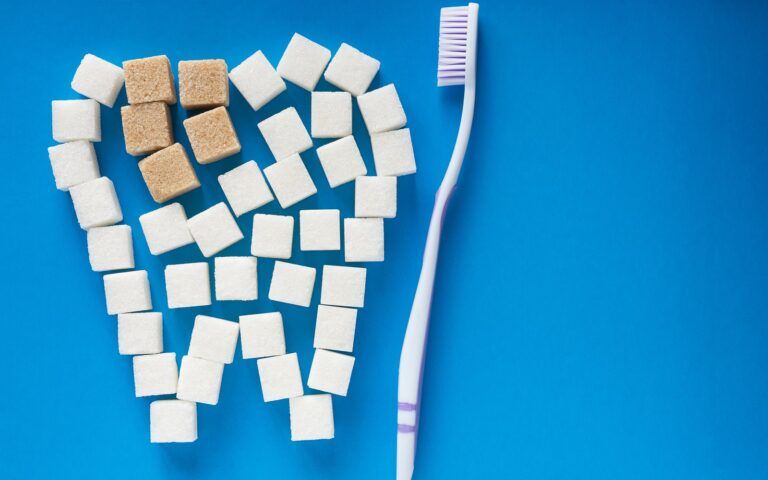Living with diabetes can add significant difficulties to managing your overall health. High blood sugar, in particular, can have a broad range of impacts. One of the areas it can affect is the health of your teeth and gums. Thankfully a little vigilance can help counter these concerns, along with a little preventative care. This guide is going to help you understand the struggles you face with dental health while living with diabetes.
Common Oral Health Concerns Occurring With Diabetes
Both diabetes types 1 and 2 involve managing your blood sugar level. Left unmanaged, this rise in blood sugar can result in multiple issues. Among these issues is the following list of oral health concerns:
- Tooth decay (cavities) – Within your mouth can be found a host of different bacteria types. Sugars and starches from food interact with these organisms to create plaque and tartar. These biofilms, along with the acids they produce, can cause tooth decay. As decay advances, it can lead to cavities as well as gum disease.
- Early gum disease (gingivitis) – One consequence of living with diabetes is an impaired immune system. This can make it difficult for your body to fight the bacteria that cause decay and gum disease. Flossing and brushing regularly and thoroughly serve as the first line of defense against these bacteria.
- Advanced gum disease (periodontitis) – When gum disease is allowed to advance unchecked, the result is periodontitis. This condition attacks the soft tissue of your gums, allows holes to develop in the teeth, and can destroy bone tissue. In extreme cases, periodontitis can cause abscesses and infections that can enter the bloodstream. This can result in a life-threatening situation.
- Thrush – The impaired immune system that those living with diabetes experience opens them to a broader range of health issues. Among these issues is thrush, an oral yeast infection typically only found in the very young or the very elderly. Immunosuppression from diabetes can make them vulnerable to it as well. Good oral hygiene is your best defense against this condition.
- Dry mouth (xerostomia) – Diabetics sometimes also experience issues with saliva production. Your saliva plays a central role in protecting against bacteria and washing food debris out of your mouth. This increases the risks of tooth decay, gum disease, and thrush.
These five concerns are frequently experienced by those with diabetes. They are more common in those who don’t maintain good oral hygiene practices, including dental visits.
Involve Your Dentist in Your Diabetes Care
Conditions like diabetes have a broad range of potential health concerns. As a result, it’s essential that you involve your dentist in your oral care. Their efforts, combined with that of your medical practitioners, can help keep the potential health consequences at bay. Throughout it all, it’s essential that you maintain a healthy oral hygiene practice. These steps are your only defense between your bi-annual visits with your dentist. When you arrive at these visits, your dentist will be able to identify any trouble areas or developing concerns. They’ll also provide a deep clean that will serve to complement the hard oral hygiene work you’ve done between visits.


